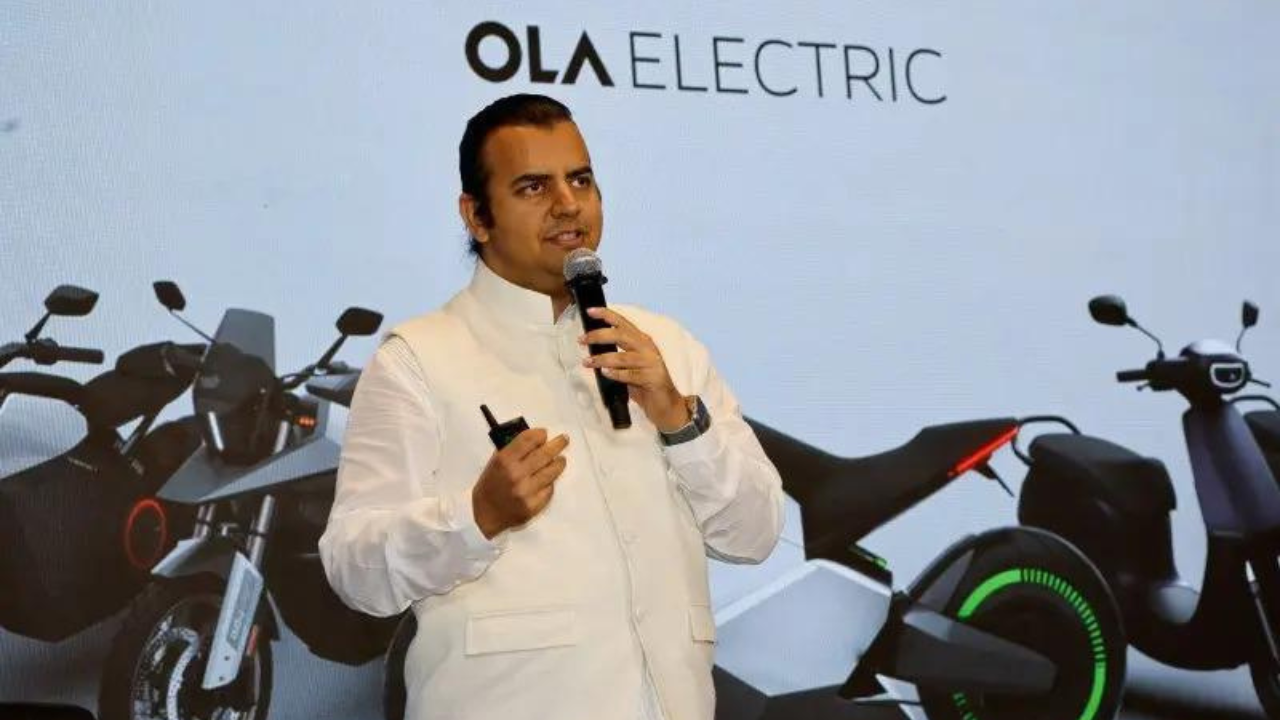
New Delhi: Ola Electric continues to be the market leader in India’s fast growing electric two wheeler (e2w) market, accounting for at least every third vehicle sold in the September quarter. But teething troubles over servicing and maintenance of the nearly eight lakh vehicles already sold continue to bog down the company. A few days back, Chairman and MD Bhavish Aggarwal once again rubbished any concerns over quality of Ola products, asserting that in terms of defects per hundred vehicles or warranty replacement, Ola vehicles were broadly in line with both, domestic and global benchmarks. But Aggarwal’s comments came just days before India’s consumer protection body said it is widening the probe into the redressal of complaints lodged by aggrieved customers. In October, the Central Consumer Protection Authority (CCPA) had sought replies from Ola over 10,644 consumer complaints and at that time, Ola had responded by saying that 99.1% of the complaints had been resolved “to the complete satisfaction of the customer, as per Ola Electric’s robust redressal mechanism”. The company had also announced a significant expansion of the service network.
Now, CCPA has asked another government agency to check whether all the consumer complaints have actually been resolved.
Speaking to analysts after the September quarter results, Aggarwal said last week “If you think of our product quality, our product quality is actually in terms of number of defects per hundred vehicles or amount of warranty replacements, etc., broadly in line with industry within India and even globally”.
He acknowledged a lag in the development of a service network by Ola however, saying that the company faced “a bit of a capacity challenge in service” in the September quarter as sales have historically expanded much faster than the service network. “But I would like to inform everybody that almost all of the backlog that was there because of the capacity issue has been solved now. And we have added capacity also as well as we have as one-time solved almost all of the backlog more than 90%-95%”.
Earlier, Ola had announced a Network Partner Program’, under which it said it had on-boarded 625 partners “to expand the sales footprint across India”. This number will increase to a 1000 partners ahead of the festive season and to 10,000, across sales and service, by the end of 2025.
Meanwhile, Aggarwal also repeated his comments about the nature and kind of service requests coming in, saying two in three are over minor issues. “…not all complaints or issues with the product. Many of them are regular check-ins. The customer scheduled maintenance, more than 2/3rd are actually just minor labour things. Something feels loose, or the guy actually doesn’t understand how his software works, so he comes in and then we explain to him. More than 2/3 are actually around these kind of minor issues where no part is actually changed. Then there are some where there are accident cases which is nothing to do with the product. And then there are some which are product warranty cases,” he said.
New platform, three wheelers:
The mass market ‘S1’ scooter series will be built on the new, Generation 3 platform and will be launched in January 2025, much ahead of the August deadline given earlier. The new platform offers 10% increase in energy efficiency and 30% increase in power with the products being 10% lighter. The new platform is also expected to provide 20% margin savings for Ola, Aggarwal said.
Ola had announced entry into motorcycles in Q2 and the first product, the Roadster, is on track for deliveries starting the March quarter. Aggarwal also confirmed earlier reports about entry into the three wheeler segment, saying these vehicles will share the S1 platform in battery architecture, electronics and powertrain. In the next two years, the company will launch more than 20 new products.
Mass market positioning, discounts:
The September quarter was the first when Ola was able to fully supply its mass market products badged under ‘S1X’ brand and Aggarwal said this portfolio grew 15% quarter on quarter. In fact, Q2 was the first instance of mass market product volumes exceeding those in the premium price range. But the premium products continued to account for a bulk of the revenue (52% of gross revenue), as the company asserted that margin profiles of both the portfolios are similar.
As for aggressive discounting – which was seen in the September quarter as an industry wide phenomenon despite festive cheer – Aggarwal said that competitors would not be able to sustain discounts as the industry scales up “because they do not have the margin structure”. For Ola, he expects quarter on quarter improvement in margins as the Generation 3 platform kicks in from the next calendar year, bringing in cost efficiencies.
To learn more about the electric vehicle ecosystem and meet the key industry leaders, click here.
















